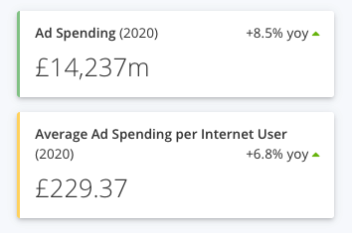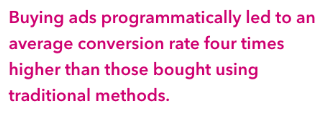There was recent furore surrounding news that local councils benefits pages had been targeted by advertising from high interest credit card companies, specifically targeting those most likely to look at a short-term fix for financial problems.

The immediate reaction concerned a perceived lack of ethics shown by the councils, seemingly allowing large financial corporations to target their most vulnerable customers in order to make a financial gain for themselves.
The way that these credit card companies were able to specifically hit their desired target market was through programmatic advertising and more specifically retargeting.
Automation
Programmatic advertising is the automated buying and selling of online adverts and the use of third party advertising cookies to track user browser habits. This allows companies to target specific demographics based on their browser history by using tracking cookies.
And this is exactly how the credit card companies were able to target council customers who visited benefits pages.

The credit card companies were very clever using targeting techniques within the automation process. This allowed them to apply context to their campaign giving it a greater opportunity to achieve its goals.
There’s money to be made
It is estimated that £14,237m will be spent on digital advertising this year in the UK. This is an increase of 8% year on year and the total number is expected to grow to a whopping £16,045m by 2023.

With numbers like these and local councils already overstretched, surely they should be applauded for looking at alternative revenue generating ideas. Especially ones that require little extra resource.
This makes sound business sense for so many industries and there are many examples where companies have nailed their programmatic campaigns, particularly within the private sector. We live in an era where so much data is available which allows for marketers to study and analyse how best to communicate with potential customers.

Ethics
However, what is not so good are examples like credit card companies tracking vulnerable people on a council benefits page. If that advertising space was bought by charities helping the financially vulnerable, such as Turn2us or Money Advice Service, the headlines would have been very different.
In reality these types of charities do not have advertising budgets to compete with large financial organisations and will invariably lose out in real time bidding.
I doubt the councils had knowledge beforehand who was buying their inventory. Therefore, it is a fair assumption to say there was a degree of naivety from the councils who are not used to selling ad slots on their websites.
The benefit of this extra financial gain could take some of the burden off their customers by reducing council tax bills. Advertising revenue could feed back into the community with improved services. I am sure this is something we could all get on board with, especially as council tax bills are increasing by an average of 4.5% across the UK.
The wider issue
One of the problems with this specific example is that poverty is also increasing in the UK and this is linked to (amongst other things) problems with the benefits system. When you look at these types of issues you can see exactly why credit card companies are targeting benefits pages.
A couple of years ago the cost of poverty was put at £78 billion per year, putting enormous strains on services that are already struggling to cope with increased costs elsewhere and a rising population.
Surely the costs to local councils of increasing poverty levels have to be assessed before taking the credit cards advertising budget. Are they really making more money from advertising than the increased costs to them of rising poverty?
I would suggest that this is highly unlikely as a large proportion of digital advertising is bought cost per thousand. For councils to benefit they would need tens of millions of visitors per month - which they do not get.
Even for some of the countries biggest councils by population such as Birmingham, Leeds and Sheffield, traffic levels are small when compared to other websites which turn large traffic into significant ad revenue.
Opportunity?
However, there is still a huge opportunity for councils to use their customers as an ethical revenue source. Combining traffic with other councils and packaging advertising deals would appeal to advertisers. The combined traffic will offer a greater opportunity for councils to increase revenues.

The demographic are generally considered socially responsible and a safe environment for advertisers. Plus they do not have to worry about fake news or unsavoury content.
In order to allow “appropriate” advertisers the chance of purchasing inventory, councils can sell their “sensitive” ad slots through private marketplace (PMP) where only selected advertisers are invited to bid.
The extra revenue generated can potentially improve services, cut council tax bills, reduce poverty and not create a media storm around who is buying their inventory.
Councils have a hard enough job as it is and we should all get onboard with any initiatives to increase revenues. The power is in the collective and none more so than when looking at public services which all society has a vested interest in and the potential to benefit from.
